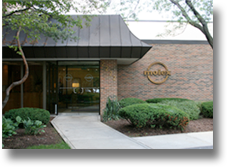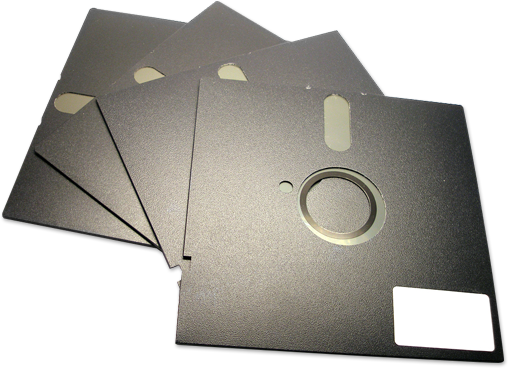From our early days as a maker of moldable thermoplastic to the industry-leading interconnect solutions we create today, our legacy of innovation spans more than seven decades.
Explore it nowPluto is discovered. Amelia Earhart flies solo across the Atlantic.
And in Brookfield, Illinois, Molex is born.

1938
Frederick August Krehbiel and his son Edwin develop a durable, moldable thermoplastic, manufactured from limestone and industrial
by-products. They call their material "Molex."



The father-son team forms what will become Molex Products Company and begin transforming their proprietary material into everything from flowerpots to toys to clock cases.
The world is at war. American factories work round-the-clock.
And the Krehbiels discover important new uses for the
moldable material called Molex.
1940
John H. Krehbiel Sr. ("Senior") joins his father and brother, bringing his innovative ideas for Molex's future.
Mid-1940s
Senior recognizes the potential of the industrial market and adds metal stamping to the Molex material to create new products.

1945
Molex enters the fledgling electrical appliance market by producing the first molded terminal block for GE Hotpoint® stoves.

U.S. Sales of $0

World War II is over, but the economic boom is just beginning.
The modern credit card appears, color TV is invented, and more and more products need electrical components from Molex.

1951
The first American computer designed primarily for administrative use — the UNIVAC I — is unveiled. Filling an entire room, it includes a dozen
Molex interconnects.
The growth of the auto industry is creating the need for interconnects that withstand the vibration of moving vehicles, especially in sensitive applications like car radios. Molex responds with a reliable interconnect solution.

1953
Molex introduces its first two-piece interconnect and chain-form terminals — advancements that simplify design, installation and maintenance of electrical wiring.

1956
By experimenting with newer plastic materials, Molex becomes a leader in the electrical appliance market with an expanding family of interconnect devices.
Molex makes another leap forward in interconnect technology, reducing plug-and-receptacle and terminal sizes by 50% — without sacrificing performance.
Company sales reach
$556,964
Molex introduces employee profit-sharing — virtually unheard of among technology companies at the time.
1959
The proliferation of push-button switches opens new markets for Molex components, including vending machines and bowling pin setters.
An era of cultural and technological change has begun.
And when Neil Armstrong lands on the moon, the world watches on TVs made with Molex interconnects.


1961
The idea of automatically making ice in a refrigerator's freezer section was an engineering challenge — until Molex engineers help Whirlpool® crack the code. Their solution is still in use today.

1966
Molex helps make a wide range of electronic devices more compact with the development of .062" terminal interconnects, the microminiature products of their day.

1967
Molex becomes the first interconnect manufacturer — and one of the first U.S. companies — to recognize the business potential of Japan. An international division is created to begin working with customers abroad.

A decade later, Japan becomes the global leader in TV, camera and video recorder manufacturing. And Molex is already there, on the ground floor.

1968
With the introduction of the KK® Modular Interconnect System, Molex is integral to color TV manufacturing. This PCB solder-board-type assembly lets manufacturers test individual components before assembly — saving time
and money.
Electronics permeate almost every part of our daily lives. By the end of the decade, we are using VCRs, pocket calculators, word processors and floppy disks. And Molex innovation is there, each step of the way.

1970
To service the consumer and telecommunications markets in Europe, Molex opens a production facility in Shannon, Ireland.

1970
The pace of innovation at Molex is so rapid that the company institutes a new event — the Patent Award Ceremony — to recognize inventive ideas and design breakthroughs.

1972
Molex becomes a public company and opens its new corporate headquarters in Lisle, Illinois.

1975
As new technologies appear on the horizon, Molex hits the ground running with interconnect solutions for computer printers, fax machines and disk drives.
1977
To better service customers, Molex opens new manufacturing plants in Singapore and Lincoln, Nebraska.
1979
For the first time, the company's international sales surpass U.S. sales.

Molex is now a truly worldwide company, selling products in 37 countries and operating 9 manufacturing facilities around the globe.
As technology expands globally, the Internet comes into being,
and the world is increasingly connected. Molex helps link people around
the globe with high-speed networking and communications technology.

1981
Molex helps enable a quantum leap forward in portable video recording with the introduction of miniature interconnects. For the first time, it's possible to build a camcorder that does not need to be supported on the shoulder.
1984
Molex continues to advance cellular phone technology by becoming an integral part of Nova Tel’s Cellular Mobile Radio, a groundbreaking innovation that serves as a blueprint for cell phones as we know
them today.

1985
With the introduction of the Molex C-Grid® SL™, photocopier manufacturing becomes simpler and faster. Manufacturers are able to use one proven interface across a wide range of housings. Plus, fully automated equipment enables modular assembly and pre-testing.

1986
Molex becomes the first international interconnect company in India when Jalex Connector Systems Ltd., a joint venture, begins operations.
By the end of the decade,
Molex has become an
undisputed global leader in the interconnect industry.


1989
Expanding its global footprint, Molex opens its first facility in China, located in Dongguan, Guandong.

Digital cameras. Satellite television. The growth of the Internet.
The age of digital technology has arrived —
enabled, in part, by standard-setting Molex solutions.
1991
Molex enters the memory card socket business, paving the way for future innovations in smartphones, mobile handsets, tablets and more.
Molex develops new Low Force Helix (LFH™) low insertion contact for high-density datacom applications — a solution that is still in use today.

1994
The company launches its first website, www.molex.com.

1999
The Video Electronics Standards Association (VESA) chooses the Molex MicroCross™ Interconnect Family as its plug-and-play display standard. Based on an innovative use of crossing ground blades, the system provides high-speed electrical performance in a low-cost format.
As the world enters a new millennium, Molex focuses on accelerated innovation to provide solutions that support everything from mobile phones to electric cars to robotic surgery.
Molex helps advance mobile phones with flexible interconnects that support new features like color displays and touchscreens.

The CompanyDoubles Its Sales,
Which Now Exceed$0

With the introduction of the da Vinci® Surgical System, more intricate medical procedures become possible. The manufacturer chooses Molex high-speed cable assemblies to handle the robot's complex data processing needs.
2003
Molex helps Tesla Motors, Inc put more electric vehicles on the road by supplying cable assemblies that meet the automotive industry's stringent
failure-rate requirements.

Molex is named to provide network cabling infrastructure for the 2004 Olympic Games in Athens, Greece.
2006
Molex acquires Woodhead®, a world leader in automation and electrical connectivity.
2007
Woodhead, now a division of Molex, helps New York City ring in the new year. Its sockets ensure the famous New Year's Eve sign in Times Square is ready to glow on schedule.

Molex helps drive even greater miniaturization and portability in consumer mobile devices when its micro-USB technology is named the industry standard.
2007
Molex acquires Polymicro Technologies, the world's leading supplier of capillary tubing and specialty optical fibers.
2008
More than 20% of revenue now comes from new products.

Molex receives an Emmy® Award for its leadership in HDTV technology. Its HDMI interconnect and cable system has become a standard component in millions of products.
Molex joins one of the largest privately held companies in the United States and expands into medical and pharmaceutical technology.

2010
Leveraging its interconnect expertise, Molex partners with Bridgelux® to create a lighting module that's as simple to use as a conventional light bulb. This effort helped Molex expand into connected lighting with Transcend® Network Connected Lighting.
2017 - Molex opens Silicon Valley technology center

2011
To sample the geochemistry of objects on Mars, NASA's Curiosity rover needs a highly reliable cable assembly that can withstand incredible temperature extremes. They turn to Polymicro Technologies, a subsidiary of Molex, to provide these specialized optical fibers.

2013
Molex Acquired by Koch Industries — representing an electronic solutions platform for growth for Koch.

2015
The 2015 Bank of America Marathon marks the inaugural year of Molex as an official sponsor.

2016
Continuing to expand into the connected health solutions market, Molex acquires Phillips-Medisize.
2017
Molex Ventures, LLC is formed to specialize in investments and collaborations with startup companies that leverage Molex capabilities.
2018
Molex enters automotive OEM business with the acquisition of Laird’s Connected Vehicle Solutions division.

2019
Molex earns national recognition for innovation, winning “Best Connected Health Platform” in the MedTech Breakthrough Awards Program for Phillips-Medisize and named a Derwent Top 100 Global Innovator.

2018 - Connected mobility solutions are unveiled at CES 2018
Molex continues to partner with the world’s leading innovators, enabling technology that is transforming the future and improving people’s lives.

2021 - To support demand for high-speed, board-to-board contactless connectivity, Molex acquires technology and intellectual property from Keyssa Inc.

2020
Further expanding expertise in optical fiber arrays and solutions, Molex acquires Fiberguide Industries.

2021
To reflect the company’s core strengths in bringing value to customers around the world, Molex launches a new brand tagline Creating Connections for Life.

2022
Molex Quad-Row Board-to-Board Connectors reach widescale commercial availability, offering 30% space savings without compromising device performance.

To better support global operations, Molex opens a new manufacturing facility in Guadalajara, Mexico, and a significant expansion of the Hanoi, Vietnam facility.

2023
Reflecting an expanding portfolio of services, Phillips-Medisize, a Molex company, launches the Envoi pen injector, a drug therapy platform.
All company and product names are trade names, trademarks or registered trademarks of their respective holders. Use of them does not imply any affiliation with or endorsement by them.
